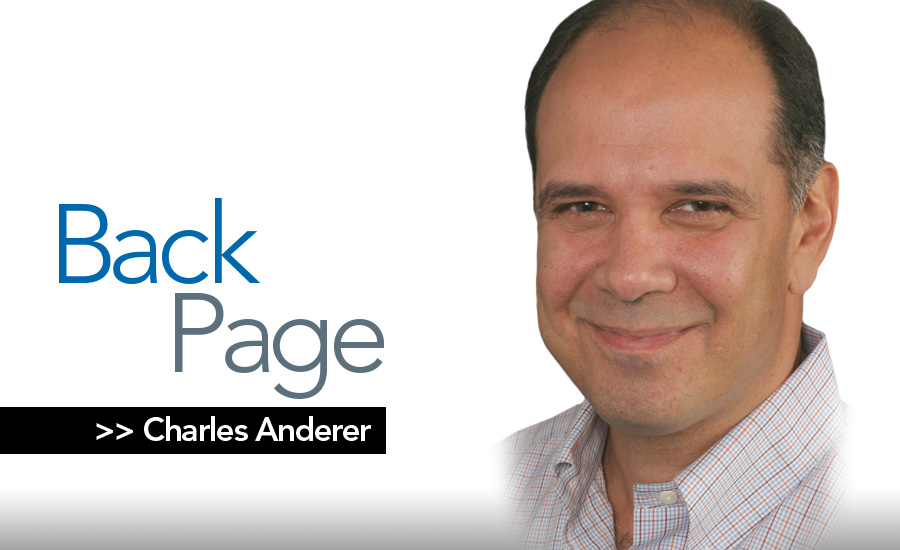This corner of the magazine is often reserved for making sense of the present as some sort of indicator for the future. Even in “normal” times, that can be a mug’s game; remember that server-based gaming era we never lived through, for instance…
So let’s start with what’s actually happening before we take a stab at the bigger COVID-19 picture.
First, your guests are watching you, they want to hear from you and they will reward you for good citizenship.
“I receive e-mails from virtually all casinos and some are doing a great job, while some seem to be missing the opportunity,” said Bobby Soper, president and CEO, Sun Gaming & Hospitality. Speaking in a webinar last month called “Gaming in Crisis: The Path Back,” he said, “Because of home-sheltering, operators have the attention of their customers like no other time before and, amazingly, those at home are actually reading stuff. There’s a tremendous opportunity to communicate what you want. Telling them the steps you are taking to promote their safety should be clearly enumerated and frequently communicated. Proactive operators will implement surveys during this time of closure so you understand their perceptions of what’s important to them and if they’re comfortable visiting the property.”
These comments were echoed by Ellen Whittemore, executive vice president, general counsel and secretary, Wynn Resorts, who said the company has seen an “incredible increase” in the number of followers on its Instagram account. She attributed this in part to the steps that Wynn had taken at closing, specifically announcing that it would pay its employees, including gratuities, originally through April 15, and now through May 15. Wynn has also engaged with its employees on a daily basis with a Daily Wire, e-mails, SMS and a specific Instagram account for just for them.
“We’ve encouraged volunteerism with our employees; asking department heads to suggest each employee donate two to three hours a week to virtual volunteerism,” said Whittemore. “We continue to contribute to our communities—$2.8 million in donations through the first three weeks of April—which gave our customers the sense that we were doing the right thing. We did these things for the right reasons, but we know from marketing efforts by various organizations that when customers come back to gaming they are going to reward the casinos that have taken care of their employees and have continued to contribute to the community.”
Wynn also put out a detailed 23-page health and sanitation reopening plan last month that includes such features as non-invasive thermal imaging cameras (which it is already using in Macau) to screen employees and customers alike for health; gaming floor social distancing; and PPE for employees based on their role. The company believes that, “By having this strong of a re-opening plan, we’ll give our customers confidence to return and enjoy themselves in Las Vegas. What that’s going to look like, I don’t know, and when that’s going to happen, we just have guesses. But we do think that if we and the industry embrace these safety steps we’ll give our customers confidence.”
The plan was unveiled by CEO Matt Maddox, who also made the call on paying wages and tips through mid-May. “He had been with the company in 2008 during the recession, and he had seen how difficult it was to re-hire and re-train our employees,” said Whittemore. “We didn’t want to be in a situation where our employees went and found something else because they didn’t have a job. We also wanted to make it as easy as possible for our employees to stay home and practice physical distancing. We felt that it was a business imperative that we do both of those things. We also recognized that although we were paying our employees, many people are part of a two-income household and their spouse would be unemployed, so we also increased the amount of money that we dedicated to our employee lifeline fund and increased the amount of money that an employee could seek on an emergency basis to pay for unexpected expenses they would incur if one member of the household was unemployed.”
Second, “normal” isn’t coming back anytime soon and it’s an open question as to what “normal” will look like when the dust settles. Warren Buffett, a man who didn’t rise to his present level by being impetuous, dumped all his airline stocks early this month. “The world has changed,” he said. And, for large customer-facing businesses, it probably has. We didn’t travel exactly the same way after 9/11, and we might not congregate the same way after COVID-19.
Re-openings will have a temporary aspect to them, but they will leave a long-term stamp on employee and customer relationships. Best then to treat the whole exercise with the maximum amount of care and commitment.
